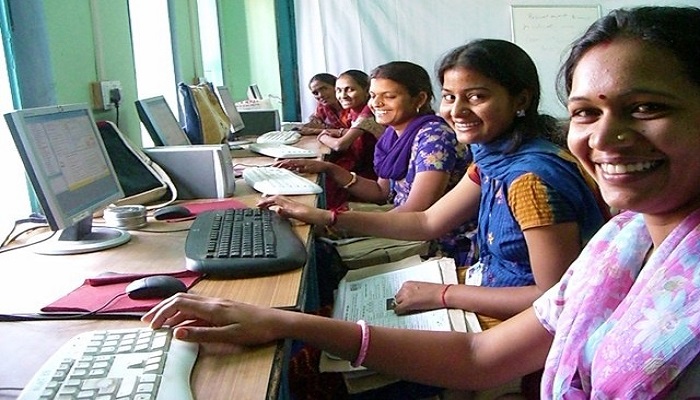
The Gandhian era and the decades after independence have witnessed tremendous changes in the status of women in Indian society. The constitution has laid down fundamental rights for the equality of sexes. But the change from a position of utter degradation and subjugation of women in the nineteenth century to a position of equality in the middle of the twentieth century is not a simple case of progress of women in the modern era.
Some important Acts passed for the upliftment and empowerment of women are:
1. The Hindu Marriage Act of 1955:
This Act provided equal rights to women to obtain divorce also maintenance in certain cases.
2. The Hindu Adoption and Maintenance Act of 1956:
By virtue of this Act, a woman can adopt a boy or a girl as her son or daughter.
3. The Hindu Minority and Guardianship Act of 1956:
This Act provides that a woman is entitled to act as the natural guardian of her minor children.
4.The Immoral Traffic (Prevention) Act, 1956
An Act to provide in pursuance of the International Convention signed at New York on the 9th day of May 1950, for the prevention of immoral traffic.
5. The Hindu Succession Act of 1956:
As a result of this Act, woman has got equal rights in the inheritance of family property. This Act is a landmark in the history of Hindu law.
6. The Dowry Prohibition Act of 1961:
According to this Act, taking or demanding dowry is an offence punishable by imprisonment and or fines.
7. The Hindu Women Right to Property Act of 1973:
According to this Act, the daughter, the widow, and the mother can inherit property of the deceased simultaneously.
8. The Equal Remuneration Act of 1976:
This Act does not permit wage discrimination between male and female workers.
9.The Indecent Representation of Women (Prohibition) Act, 1986
An act to prohibit indecent representation of women through advertisements or in publications, writings, paintings, figures or in any other manner.
An amendment bill of this act is pending in Rajya Sabah.
10. The Pre-Natal Diagnostic Techniques (Regulation and Prevention of misuse) Act 1994:
This Act looks into the misuse of pre-natal diagnostic techniques for the purpose of pre-natal sex determination leading to female foeticide; and, for matters connected.
11. Protection of Women from Domestic Violence Act, 2005
An act to provide for the more effective protection of the rights of women guaranteed under the constitution that are victims of violence of any kind occurring within the family and for matters connected therewith or incidental thereto.
12. The criminal law (amendment) Bill, 2013
This legislation is the result of protest against Delhi rape case also known as Nirbhaya case. This legislation provides amendment in Indian penal code, Code of Criminal Procedure and Indian evidence act on laws related to sexual offences. This bill introduces and amended offences like acid attack, act with intent to disrobe a women, voyeurism, stalking & sexual harassment into the Indian penal code.
13. The Sexual Harassment of Women at Workplace (PREVENTION, PROHIBITION, and REDRESSAL) Act, 2013
This act provides protection against sexual harassment of women at work place and for the prevention and redressal of complaints of sexual harassment.

Post Your Comments